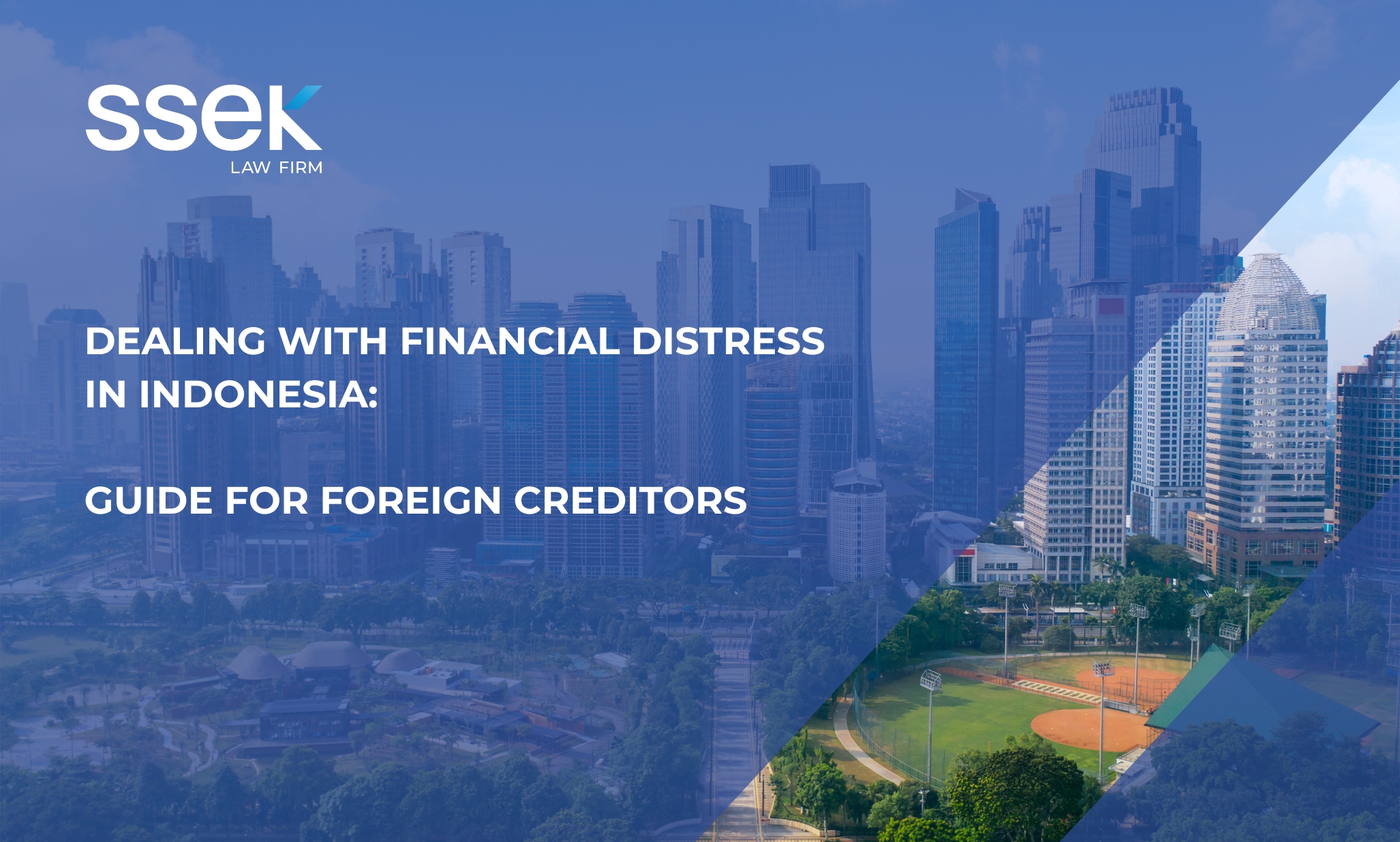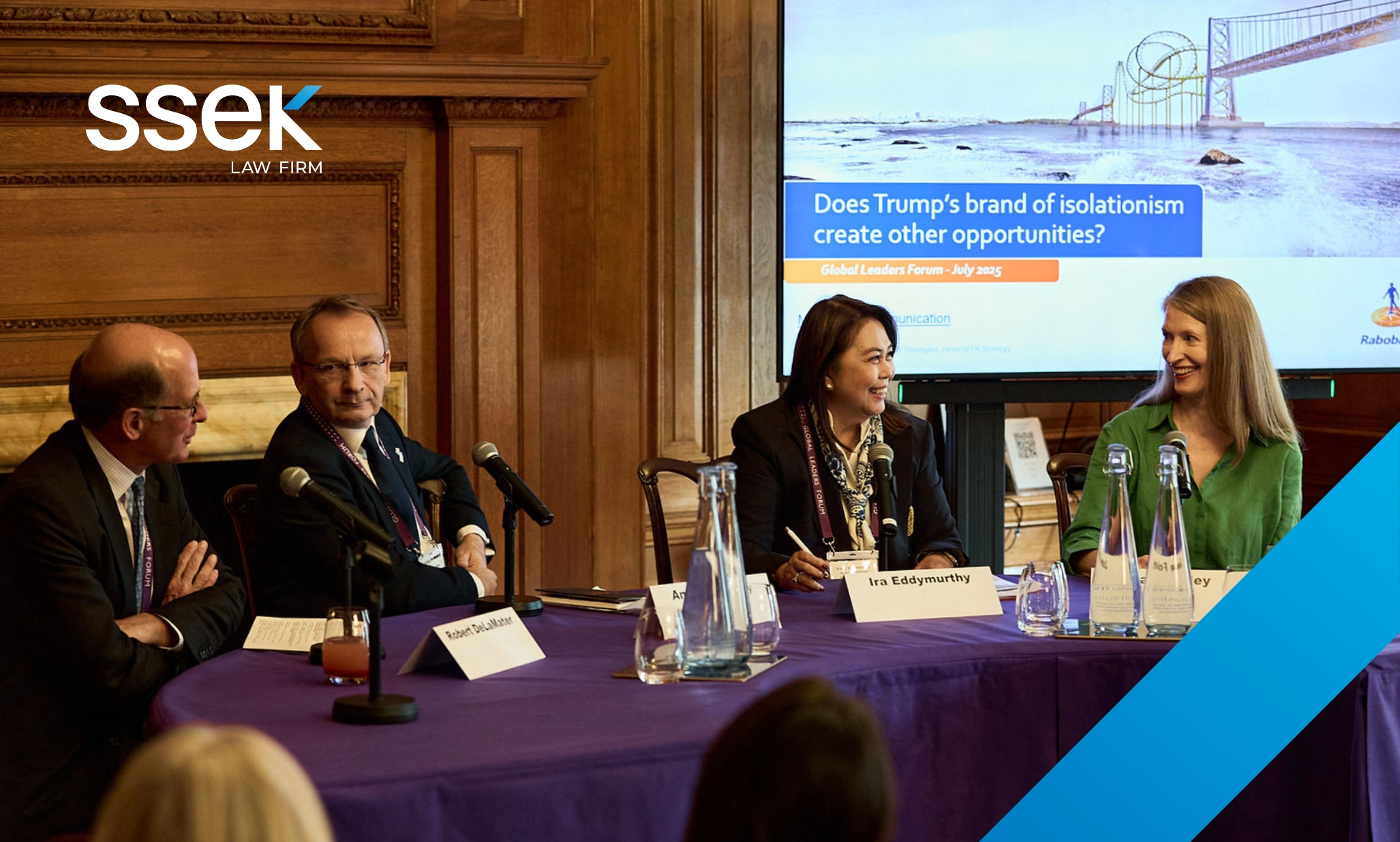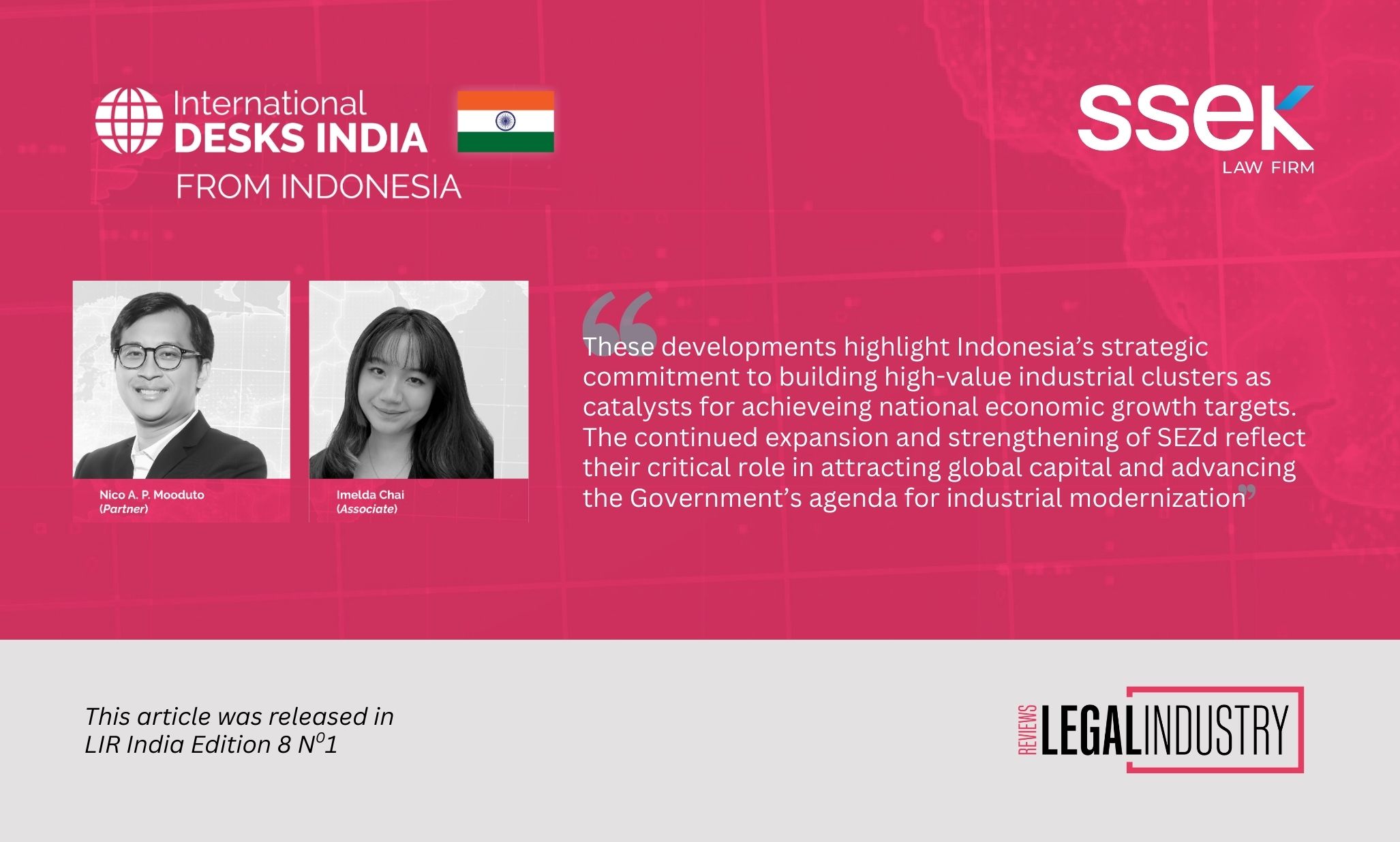

The issuance of Indonesia's Job Creation Law (Law Number 11 of 2020) and the New Investment List eased foreign investment restrictions for businesses across the country's economy. For distributor businesses, the previous foreign ownership cap of 67% was removed to allow in principle 100% foreign capital, a loosening that could result in greater foreign investment into the sector.
General Distribution Foreign Ownership Limitation
Prior to 2021, foreign investment limitations were regulated by the Negative Investment List, as contained in Presidential Regulation No. 44 of 2016 regarding Lists of Business Activities that Are Closed for Investment and Open for Investment with Conditions ("PR 44/2016"). The Negative Investment List refers to business lines and code numbers set forth in the Indonesian Standard Industrial Classification of 2015 (the "KBLI"), which provides a list of business activity classifications and descriptions of businesses in Indonesia.
Distribution not affiliated with production, which is covered by KBLI No. 00000, had a maximum foreign ownership of 67%. The minimum investment value for foreign investors performing distribution activities was more than Rp10 billion, excluding land and building, per the first two digits of the KBLI code.
Now, with the issuance of the New Investment List, regulated under Presidential Regulation No. 10 of 2021, as amended by Presidential Regulation No. 49 of 2021 ("PR 10/2021 as amended"), wholesale activities, which include distribution, importation and exportation, are open for 100% foreign investment, with a minimum total investment of more than Rp10 billion, excluding land and building, per the first four digits of the KBLI code. For example, if a foreign distribution company intends to engage in business activities that fall under KBLI No. 46331 (Sugar, Chocolate and Confectionery Wholesale) and KBLI No. 46332 (Bread Products Wholesale), its total minimum investment is more than Rp10 billion. However, if that company wishes to add KBLI No. 46326 (Milk and Dairy Products Wholesale), its total minimum investment will be more than Rp20 billion.
Wholesale activities are generally covered under KBLI numbers starting with 46 or, for wholesale activities for vehicles, 45. While most distribution activities are now open for 100% foreign investment, KBLI No. 46206 for the distribution of fishery products requires the foreign investor to partner with an Indonesian micro, small or medium enterprise, pursuant to Annex II of PR 10/2021 as amended.
Distribution Sector Risk Levels
Distribution activities are categorized according to risk level, which determines the business licensing requirements. The three risk levels are (i) Low Risk, (ii) Medium Risk (which is further divided into Medium-Low and Medium-High Risk) and (iii) High Risk. The following are examples of KBLI numbers for each risk level, with the associated licensing requirements:
- Low Risk: the relevant license is a Business Identification Number (Nomor Induk Berusaha or "NIB") and a registration license. An example of a business activity in the low-risk level is KBLI No. 45101 (Wholesale of New Cars), which requires an NIB and Proof of Warehouse Registration (Tanda Daftar Gudang or "TDG") issued by the Ministry of Trade ("MOT"). Business actors shall also obtain a Type 1 Business License for low-risk distribution activities, pursuant to MOT Regulation No. 8 of 2020.
- Medium Risk: In addition to an NIB, medium-risk activities (both medium-high and medium-low risk) require a Standard Certificate verified by the Online Single Submission ("OSS") system and a sectoral license issued by the relevant ministry. For example, business actors performing activities that fall under KBLI No. 46442 (Wholesale of Traditional Medicine), classified as a medium-high risk business activity, require an NIB, a verified Standard Certificate and an additional administration license pursuant to Ministry of Health Regulation No. 14 of 2021 regarding Business Activity and Product Standards in Implementing Risk-Based Licensing for the Health Sector ("MOH Reg. 14/2021").
- High Risk: Activities in this risk level require an NIB and a technical license from the relevant ministry. For example, KBLI No. 46441 (Wholesale of Pharmaceuticals) requires an NIB and a technical license based on the Appendix of MOH Reg. 14/2021.
Please note that the above requirements may change from time to time depending on the latest regulations issued by the relevant government agencies.
For distributors that also act as importers, the NIB shall also act as an Importer Identification Number (Angka Pengenal Importir or "API"). Under MOT Regulation No. 75 of 2018 regarding Importer Identification Number, the MOT recognizes two types of API, i.e., the General API to import and sell certain goods and the Producer API to import goods for internal use. The goods imported by the holder of a Producer API shall be used as capital goods, raw materials and supporting materials.
Requirements for Distributors
Distributors, both foreign and domestic, must fulfil the following requirements pursuant to Article 38 of Government Regulation No. 29 of 2021 regarding Operation of Trade Sector ("GR 29/2021"):
- Business License as a distributor;
- Permanent address that is a registered business location;
- Owning or controlling a registered warehouse with a permanent address. The distributor may rent the warehouse from a third party, which shall constitute "controlling" the warehouse; and
- Agreement with the producer, supplier or importer of the goods that shall be distributed to consumers.
In addition to the above requirements, foreign distributors must appoint an Indonesian entity to act as their distributor, exclusive distributor, agent or exclusive agent. The relationship between the foreign distributor and the Indonesian party shall be formalized in a legalized agreement made before a notary. The foreign distributor shall also obtain written approval from the principal producer it represents prior to entering into the agreement with the Indonesian party. These requirements are regulated under Article 4 of MOT Regulation No. 24 of 2021 regarding Agreement for the Distribution of Goods by Distributor or Agent ("MOT Reg. 24/2021").
Indonesian Distributor vs. Agent
Noting that foreign distributors have the option to appoint either an Indonesian distributor or an Indonesian agent, we summarize key points for foreign distributors to consider when deciding between a distributor or agent to assist in carrying out their activities:
- Indonesian Distributor: the commitment is based on an agreement or appointment. The distributor will own or control the goods, is compensated based on a price margin as stipulated in the agreement with the foreign distributor and shall be subject to Value Added Tax ("VAT").
- Indonesian Agent: the commitment is based on an agreement or appointment. However, the agent does not own or control the goods, is paid on commission, and is not subject to VAT.
Distribution Flow
For goods that are intended to be sold to end or individual consumers, the scenario starts from a manufacturer in Indonesia, whether foreign or wholly Indonesian-owned. This manufacturer shall then pass its goods to a foreign distributor. Noting the requirement under MOT Reg. 24/2021, the foreign distributor shall hand over the goods to an Indonesian distributor or agent, which shall distribute the goods to retailers. Once the Indonesian distributor or agent has obtained the goods, it may sell the goods to retailers, which will then sell them to end consumers.
For goods in a business-to-business scenario, the Indonesian distributor or agent may sell the goods directly to its consumers, who are known as intermediary consumers.
The above material is intended for informational purposes only and does not constitute legal advice. Circumstances may change and this material may become outdated. SSEK is under no obligation to update or correct this material. Any reliance on the material contained herein is at the user's own risk.









